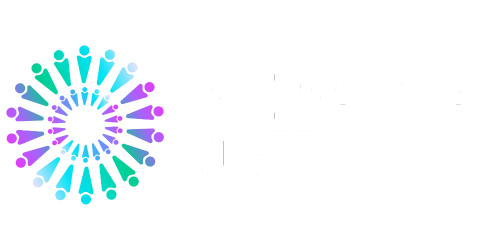Session Insights: Beyond the Event Horizon
)
In a vibrant session held at the Power of Events Theatre, industry experts gathered to discuss the impactful legacy and sustainability of events. The panel included notable speakers James Latham from Intellectual Capitals and The Iceberg, James Rees from ExCeL London, Joanna Rowlands from ACC Liverpool, Paul Black from VisitBritain, and Simon Hughes from The Power of Events. The session, titled "Beyond the Event Horizon," provided insights into the evolving landscape of the UK events industry.
Simon Hughes opened the session by highlighting the initiatives undertaken by The Power of Events, including the launch of a careers hub and a schools engagement pilot programme. He emphasised the importance of the newly upgraded Event Industry Insight app, which aims to enhance research capabilities within the industry.
Paul Black, Head of Business Events for VisitBritain and Visit England, discussed the organisation's role in supporting the industry to secure more international events for Britain. He outlined a three-phase approach to creating impact strategies: developing toolkits, launching a course for City Convention Bureaux and PCOS, and introducing a comprehensive framework. This framework focuses on eight key areas, including political, intellectual, and social impact, aiming to broaden the narrative beyond mere economic benefits.
Joanna Rowlands from ACC Liverpool shared the success story of hosting the Eurovision Song Contest in Liverpool. She highlighted the importance of a multi-agency approach in planning and executing the event, which involved various stakeholders from the beginning. The event not only boosted the local economy but also re-established vital networks within the city. Rowlands emphasised the long-term benefits, such as setting up networks that can be utilised for future events like Taylor Swift's concert and the Labour Party Conference.
James Latham, founder of The Iceberg, elaborated on the value of business and professional events in advancing strategic objectives. He cited the example of the European Society for Radiotherapy and Oncology (ESTRO) and their innovative approach to increasing the uptake of radiotherapy in cancer treatment. By embedding their mission into the event's RFP, they achieved significant outcomes, including a substantial investment in Spain's healthcare infrastructure.
The session also touched upon the global context, with Latham discussing his recent trip to Canada, where he examined the legacy and impact of events like "Insects to Feed the World." This event in Quebec significantly advanced the alternative protein industry, demonstrating the transformative potential of well-planned events.
Paul Black concluded by emphasising the collaborative nature of the industry and the importance of aligning event goals with sustainable development objectives. He encouraged attendees to leverage available resources, such as the Sustainable Development Goals, to measure and enhance the impact of their events.
The panellists agreed that while the journey towards achieving significant legacy and impact is ongoing, the industry's collaborative efforts and strategic planning are essential. They urged attendees to engage with their clients and stakeholders early in the planning process to ensure their events contribute positively to both the local community and the broader industry.
In closing, Hughes encouraged attendees to download the Event Industry Insight app to support data-driven growth and advocacy for the industry. The session concluded with a call to action for the events community to continue pushing the boundaries and striving for impactful, sustainable events.
